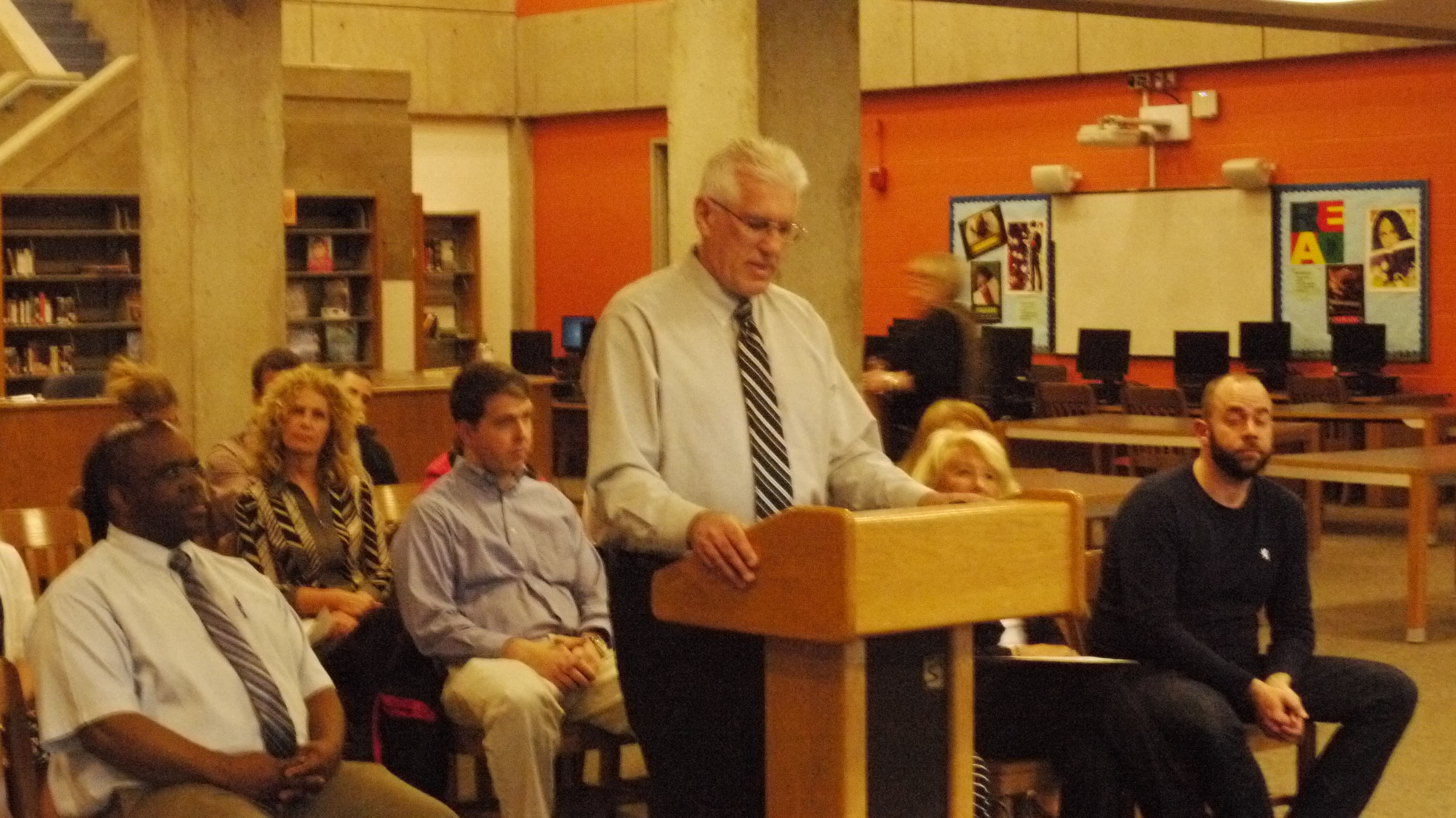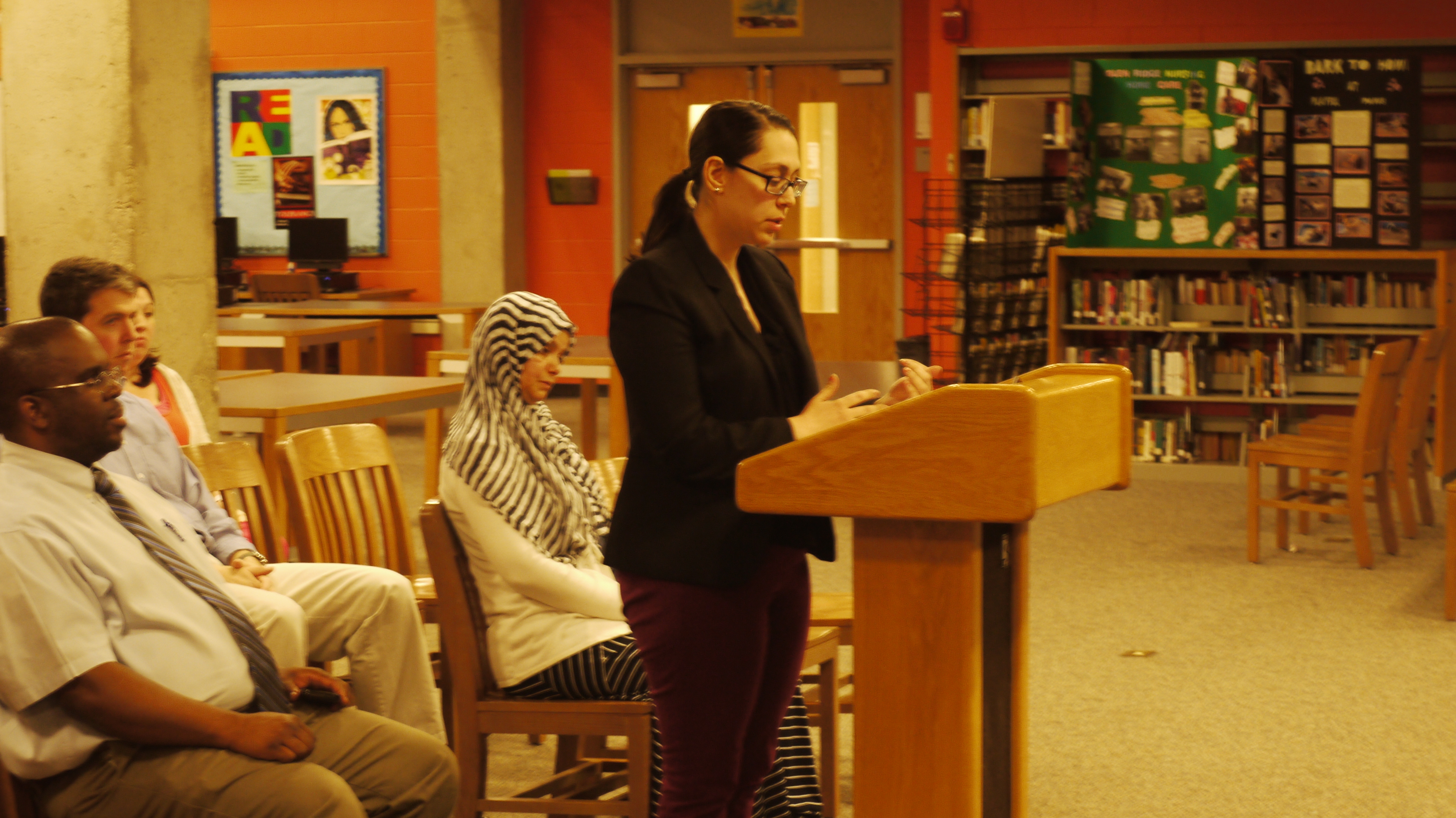On April 30th, Malden High School hosted a public hearing in the library regarding the new IDEA program that is being developed by small cohort of Malden High School Faculty and other educators. IDEA, which stands for the International Day and Evening Academy, is the proposed solution to a problem that not many students and community members are fully aware of, the growing number of overage and under-credit students who have faced gaps in their formal education, and who are now enrolled in Malden High School.

In Malden High School, nearly 250 students are currently in the ESL, or English as a Second Language program. The ESL program provides students who aren’t native speakers a way to integrate into the American education system and work towards language proficiency as well as a high school diploma. Recent data shows that 29% of ESL students are over 18 years old, 55% are considered moderate or high risk, and 47% are currently in 9th grade, with students in the last category ranging from 14 to 20 years old. What this shows is that the high school may not cater to a large portion of those who are enrolled in it.
The IDEA program directly addresses the segment of ESL students who would otherwise struggle in the classes they would normally be placed in by focusing more attention on competency than on credit-hours. This idea is not all that foreign, as colleges regularly allow students to demonstrate their mastery of a topic instead of placing them in a certain class, but normally it is reserved for the beginning of one’s academic career. This stands as a prominent obstacle to those who have mastery of many topics but lack the official class time needed to gain credit for them, a case not uncommon within the ESL community.
The idea of this program revolves around alternative methods for students to get credit for what they know and learn what they don’t, namely a revised schedule and set of classes that are available to students who need them. These classes would allow students to learn at their own pace and make up for education time that they lost in the past, gaining ground and graduating with their peers as well as generally becoming productive and successful members of their communities.
In the spring of 2014, Malden teacher Shereen Escovitz applied for and was awarded an Innovation Schools Fellowship Grant by the Massachusetts Department of Elementary and Secondary Education, a grant to be used in the creation and running of this program. This year, Escovitz and her team have started the process of setting up this program by running a pilot program centered on establishing the basis for IDEA. With a strong partnership between Bunker hill Community College and Malden High School available, students are able to supplement their schedules with classes from the community college. With the Chromebook 1:1 initiative, technology integration has begun, a must have for students who often lack basic technology skills or require access to technology in order to complete their work and their study. And with the support of these faculty members, the students who are participating in this pilot are able to take advantage of the resources that would have otherwise been unavailable in order to better themselves.
Even with all of the work that has been done and the planning that is in place, Escovitz and her team still face a major obstacle, the school board. That isn’t to say the school board is opposing the program, nor has it approved it, rather, the school board is undecided. Because of this, there is no guarantee that the program will be picked up in the future or that he program will receive enough funding to reach its full potential if it is approved. This uncertainty is what prompted the public hearing on April 30th.

The hearing was simple, a podium where members of the community and the Malden High School staff could speak their mind, and a panel, consisting of the majority of the Malden School Committee as well Superintendent David DeRuosi, who were there to hear their thoughts on this significant topic. The event was kicked off by Principal Dana Brown who took care to note the specific purpose of the program and, on a more human level, the “moral obligation [we have] to make sure that these students enter our society fully prepared for what they will need to do.” Subsequent speakers continued in this vein, with many giving anecdotal examples of their interactions with these overage and under-credit students.
A prime instance of this came from 9th grade Guidance Counselor Heather Northrop when she told the story of an unnamed Malden High School student who “arrived as a 17 year old freshman with no English skills and a 3 year gap in learning.” This student was given some accommodations, but with her extenuating circumstances, that was not enough, for “she not only had to learn our language and our culture, but [she had to] catch up on academic content she had missed in [those] 3 years. As Northrop continued to speak, it was revealed that these obstacles, difficult yet absolutely overcomable with the proper support network, proved insurmountable for the student, as “she … dropped out after being a 19 year old freshman again this year.” These stories were not uncommon, and while not all were so extreme, each followed a central thread, the difficulty that this specific and expanding segment of the student body has when adjusting to the new environment of the United States and an academic environment.
Many of the teachers who spoke also focused on the classroom dynamic that has appeared as a result of these students being placed into classes which don’t suit their needs. Math teacher Cara Joyce talked in length about the courses that she teaches for ESL students and how full they are becoming. She admitted that “there are too many of them to handle in one period in one day” and as a result, “[she has] been forced to put students back into general classes or turn other needy students away because of the number of students.” These students who are being turned away are not ready to go back into the general classes in which their peers are enrolled. They need the special attention that they get from teachers like Joyce and all of the other faculty who cater to their unique situations. Even the work that is being done now, such as the saturday history class teacher Dana Marie Brown runs for 9 ESL students each week, is not enough to fully provide for these students.

For now the fate of this program hangs in the balance. The school committee has yet to rule on it and as a result it will remain in a budgetary limbo. While Escovitz did stand by the idea that “budgets are an obstacle, not an excuse,” that means little when the real budget is at stake, and along with it the fate of other valuable programs. School committee member Adam Weldai pointed out that while “the IDEA academy is a great idea that fills a true community need,” it will be difficult because of “the lack of funds coming in from the state.” Mayor Gary Christenson brought up the possibility of funding the program through “grant and foundation funding, or some combination of both” if it couldn’t get a place in the budget. All of these factors are currently weighing on the minds of the school committee as they deliberate on the fate of the program as well as the composition of the budget. No matter what the school committee decides, it is obvious that there are many who care deeply about IDEA as well as the innumerable current and future students who will benefit from it, it is obvious that a significant amount of work has been done to lay the foundation for its success, and it is obvious that the Malden High School community is there for those students with whatever they can muster.
For more information visit the official site of Malden IDEA.

